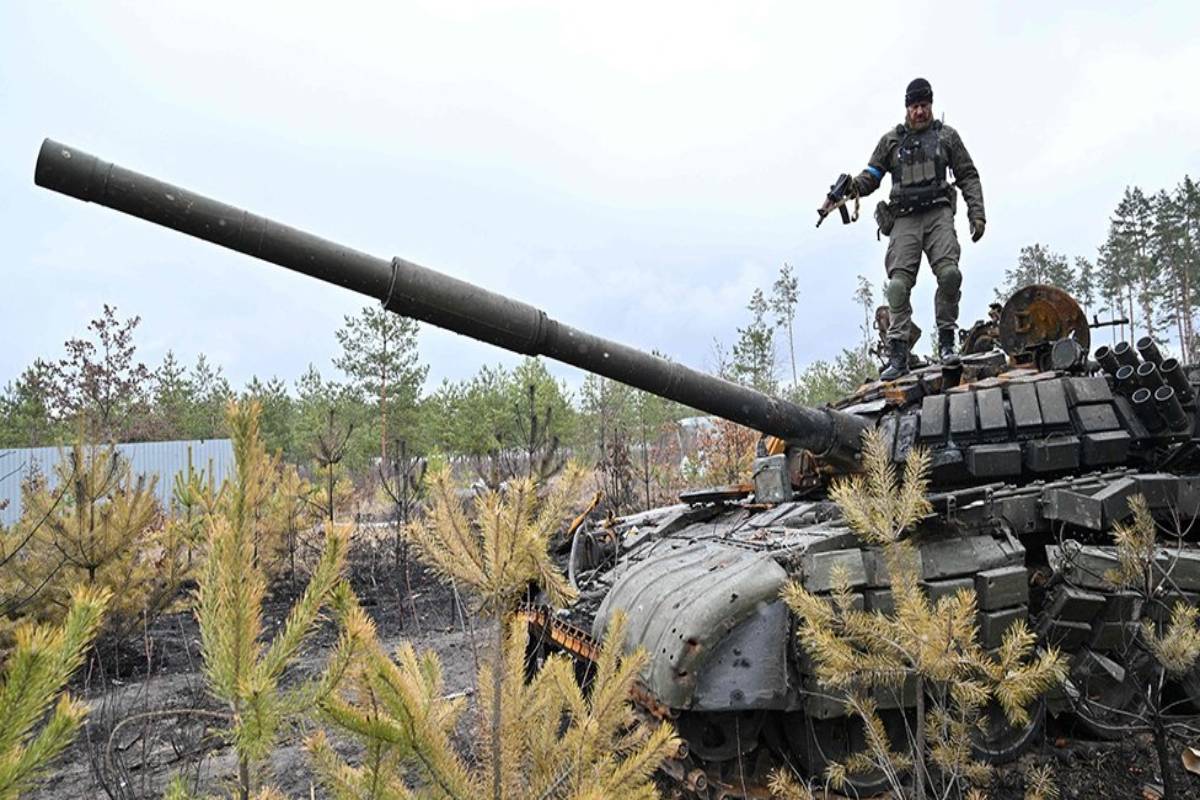As the Ukraine crisis deepens, Russian President Vladimir Putin’s explicit nuclear warning has sent shockwaves through the global geopolitical landscape. To truly grasp the significance of Mr Putin’s statement, we must trace its roots back to the catalyst ~ a proposal presented by French President Emmanuel Macron. Despite facing swift rejection, Mr Macron’s proposition laid the groundwork for Mr Putin’s robust response, adding a complex layer to an already tense situation. Mr Macron’s suggestion, made earlier this week, floated the idea of European NATO members deploying ground troops to Ukraine.
Though swiftly dismissed by key Western powers, the proposal became the focal point for Mr Putin’s address to lawmakers and the country’s elite. In response, Mr Putin not only rebuffed the proposition but delivered a chilling warning, asserting Russia’s capacity to strike Western targets with nuclear weapons. Understanding this context is essential for unravelling the evolving dynamics of the Ukraine crisis, shedding light on the intricacies and tensions shaping international relations. Mr Putin’s accusations of Western interference in Russia’s internal affairs and attempts to weaken the nation underscore the deep-seated animosity at the heart of this perilous standoff. The nuclear warning, though not entirely unprecedented in Mr Putin’s rhetoric, stands out as one of his most explicit statements on the potential consequences of a direct confrontation between NATO and Russia. By referencing historical invasions of Russia, Mr Putin suggested that the consequences today would be “far more tragic,” demanding careful consideration on the global stage. As Russian forces claim initiative on the Ukrainian battlefield and advance in key locations, concerns about further escalation and the potential impact on neighbouring countries intensify. Mr Putin’s dismissal of suggestions that Russian forces might extend beyond Ukraine as “nonsense” adds complexity to the unfolding conflict dynamics. The decision to bolster troop numbers along Russia’s western borders, in response to Finland and Sweden aligning with NATO, introduces a geopolitical dimension to the crisis. Mr Putin’s emphasis on avoiding an arms race and prioritising defence-industrial development reflects a strategic approach focused on safeguarding Russia’s interests amid external pressures.
The call for discussions on nuclear strategic stability with the United States, set against accusations of false claims and attempts to dictate negotiation terms, highlights the diplomatic challenges at play. Mr Putin’s scepticism regarding Washington’s genuine interest in such talks adds another layer of complexity to finding common ground amidst escalating tensions. In the unfolding drama of the Ukraine crisis, Mr Macron’s proposal acted as a trigger, sparking a chain reaction that now threatens to plunge the world into a geopolitical maelstrom. As the international community grapples with these developments, the imperative for diplomacy and de-escalation has never been more pressing. The coming days will test diplomatic prowess and international cooperation, with the hope of averting a potentially catastrophic outcome that could reverberate across the global stage.












